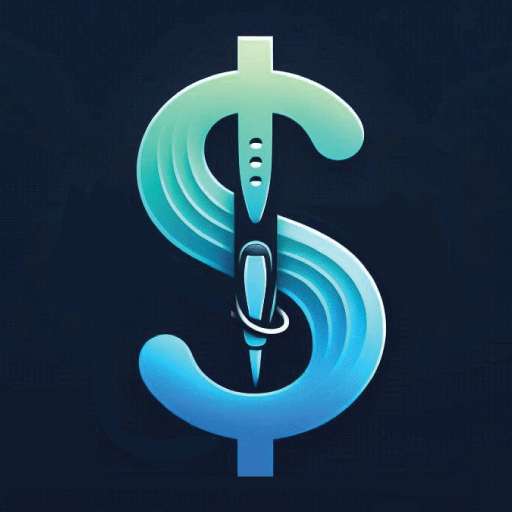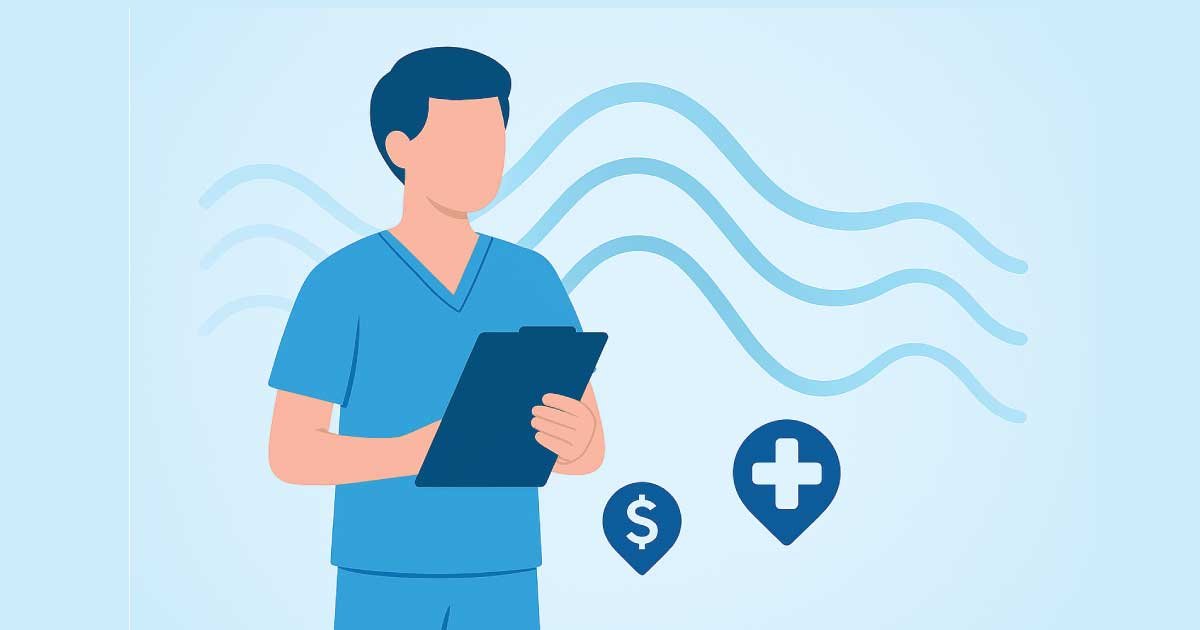When it comes to understanding the inner workings of the human heart, few roles are as essential as that of a cardiac sonographer. These professionals play a critical role in modern healthcare, using specialized technology to help doctors diagnose and monitor heart conditions. But what exactly does a cardiac sonographer do on a daily basis? In this blog post, we’ll explore the job description, education requirements, work settings, and much more to give you a clear picture of this fascinating career.
Cardiac Sonographer Job Description
A cardiac sonographer, also known as an echocardiogram technician, uses ultrasound equipment to create images of the heart, known as echocardiograms. These images allow physicians to observe the heart’s chambers, valves, blood flow, and overall function. Sonographers work closely with cardiologists to ensure accurate diagnoses and effective treatment plans.
Their primary responsibility is to perform cardiac ultrasound procedures that are non-invasive and safe for patients. These include transthoracic echocardiograms (TTE), transesophageal echocardiograms (TEE), stress echocardiograms, and fetal echocardiograms.
A Day in the Life of a Cardiac Sonographer
The daily routine of a cardiac sonographer varies depending on their workplace. However, a typical day might involve:
- Reviewing patient medical histories
- Preparing ultrasound equipment
- Explaining procedures to patients
- Performing the necessary heart scans
- Analyzing images and providing preliminary findings to the physician
Patient care is at the heart of this profession. Patient interaction in cardiac sonography is a significant part of the job. Sonographers must communicate clearly, handle patients with care, and make them feel at ease during procedures.
👉 “Please check out our detailed guide on:
Skills Required for Cardiac Sonography
To succeed in this field, a cardiac sonographer must possess a combination of technical knowledge and interpersonal skills. Some of the key skills required for cardiac sonography include:
- Proficiency in operating ultrasound equipment
- Strong understanding of cardiovascular anatomy
- Attention to detail and critical thinking
- Communication and empathy
- Physical stamina for standing and moving equipment throughout the day
These skills enable sonographers to produce high-quality images and assist in diagnosing potentially life-threatening heart conditions.
Cardiac Sonographer vs Ultrasound Tech
It’s common to confuse a cardiac sonographer vs ultrasound tech, but they are not exactly the same. While both use ultrasound technology, a cardiac sonographer specializes in imaging the heart. On the other hand, general ultrasound technicians (also called diagnostic medical sonographers) may focus on other areas of the body such as the abdomen, pelvis, or blood vessels.
This specialization in cardiology requires additional training and a deeper understanding of heart-related conditions and imaging techniques.
👉 “Please check out our detailed guide on:
Where Do Cardiac Sonographers Work?
You can find cardiac sonographers in a variety of healthcare settings, such as:
- Hospitals
- Cardiology clinics
- Diagnostic imaging centers
- Private physician offices
- Mobile imaging services
Where do cardiac sonographers work also depends on regional demand and population demographics. Larger urban hospitals often offer the most advanced technology and diverse patient cases, while rural settings might offer more flexible schedules and closer patient relationships.
How to Become a Cardiac Sonographer
Interested in this career path? Here’s a look at how to become a cardiac sonographer:
Education: Obtain an associate’s or bachelor’s degree in diagnostic medical sonography or cardiovascular technology.
Accreditation: Choose a program accredited by the Commission on Accreditation of Allied Health Education Programs (CAAHEP).
Certification: Get certified by organizations like ARDMS (American Registry for Diagnostic Medical Sonography) or CCI (Cardiovascular Credentialing International).
Clinical Training: Complete hands-on clinical training during your program to gain practical experience.
Cardiac Sonographer Education Requirements
To meet cardiac sonographer education requirements, you typically need to complete a postsecondary education program. Most programs include coursework in anatomy, physiology, medical ethics, and ultrasound physics, along with clinical rotations. Some employers may prefer candidates with a bachelor’s degree, especially for advanced or leadership positions.
Continuing education is also important to keep up with evolving technology and maintain certifications.
👉 “Please check out our detailed guide on:
Cardiac Sonographer Career Path
The cardiac sonographer career path offers several opportunities for advancement. With experience and additional certifications, a sonographer can become:
- A lead sonographer
- An educator or clinical instructor
- A cardiovascular sonography program director
- A sales representative or application specialist for medical imaging equipment
Career mobility is one of the attractive aspects of this profession, allowing for both lateral and upward movement.
Types of Heart Scans Performed
A cardiac sonographer performs several types of heart scans, depending on the patient’s condition and the physician’s needs. Common procedures include:
Transthoracic Echocardiogram (TTE): Standard heart scan through the chest wall.
Transesophageal Echocardiogram (TEE): An invasive scan through the esophagus for more detailed images.
Stress Echocardiogram: Conducted while the heart is under stress, usually after exercise or medication.
Fetal Echocardiogram: Performed on pregnant women to check the baby’s heart development.
These scans are vital for detecting abnormalities, assessing heart function, and guiding treatment plans.
Heart Ultrasound Imaging Explained
Heart ultrasound imaging explained simply means visualizing the heart in real-time using high-frequency sound waves. This non-invasive procedure is safe, painless, and provides valuable insights into heart health.
Sonographers use a probe called a transducer to send sound waves into the body. These waves bounce off the heart structures and return to the machine, which converts them into images. The images are then analyzed for irregularities in size, motion, and function.
Cardiac Sonographer Salary and Benefits
According to recent data, the cardiac sonographer salary and benefits are quite competitive. The median annual wage in the United States ranges from $65,000 to $90,000, depending on experience, certification, and location.
Benefits often include:
- Health and dental insurance
- Retirement plans
- Paid time off
- Continuing education support
- Flexible scheduling in some settings
With job demand on the rise, cardiac sonography offers not just good pay but also strong job security.
Importance of Cardiac Sonography in Healthcare
The importance of cardiac sonography in healthcare cannot be overstated. It enables early detection of heart disease, helps monitor chronic conditions, and guides physicians in surgical planning or emergency interventions. This role supports patient outcomes by providing timely, accurate, and detailed images of the heart.
Moreover, the non-invasive nature of echocardiography makes it a preferred diagnostic method, reducing the need for riskier procedures.
👉 Discover the Ultimate Guide to All Sonographer Salaries in the USA — your go-to resource for the latest, expert-reviewed data on sonographer pay. Updated regularly with trends by state, specialty, and certification to help you stay informed and plan your career.
Final Thoughts
If you’re interested in healthcare and have a passion for technology and patient care, becoming a cardiac sonographer might be the perfect fit for you. The role is dynamic, rewarding, and critically important in the fight against heart disease.
From understanding how to become a cardiac sonographer to learning about the different types of heart scans performed, this field offers variety, stability, and purpose. Whether you’re just starting your journey or considering a career change, now is a great time to explore what a cardiac sonographer does and how you can become one.
Disclaimer: This content is based on publicly available information and industry data. Salary estimates are approximate and may vary depending on experience, location, and job role. This article is for informational purposes only and does not constitute financial, career, or legal advice.
FAQs:
Is cardiac sonography a good career?
Yes, cardiac sonography is a rewarding and stable career. It combines healthcare with technology and offers good job prospects, competitive pay, and the chance to make a real difference in patients’ lives. If you enjoy working with people, are detail-oriented, and like medical imaging, this field offers long-term growth and job satisfaction.
How long does it take to become a cardiac sonographer?
It typically takes 2 to 4 years to become a cardiac sonographer. You can complete a two-year associate degree or a four-year bachelor’s program in cardiovascular technology or diagnostic medical sonography. Many programs include clinical training, and certification may require additional time. Fast-track options exist for those with prior healthcare education.
What’s the difference between a cardiac sonographer and an echo tech?
There’s no major difference—“cardiac sonographer” and “echo tech” are often used interchangeably. Both terms refer to professionals who perform echocardiograms to assess the heart’s function and structure. “Echo tech” is a more informal term, while “cardiac sonographer” is more widely used in medical and educational settings.
Do cardiac sonographers work night shifts or weekends?
Yes, some cardiac sonographers may work nights, weekends, or be on call—especially in hospitals or emergency settings. However, many work regular daytime hours in outpatient clinics or physician offices. Your schedule largely depends on the workplace and whether it provides 24/7 care or operates during standard hours.
What should I study to become a cardiac sonographer?
To become a cardiac sonographer, study subjects like anatomy, physiology, ultrasound physics, and cardiovascular technology. Most programs also include hands-on clinical training. Look for an accredited program that prepares you for certification exams such as those offered by ARDMS or CCI. Strong science and math skills are helpful.
Is being a cardiac sonographer stressful?
Like many healthcare jobs, it can be stressful at times—especially when dealing with urgent cases or full schedules. However, many sonographers find the work meaningful and fulfilling. Good time management, communication skills, and a supportive work environment can help reduce stress and keep the job enjoyable.

